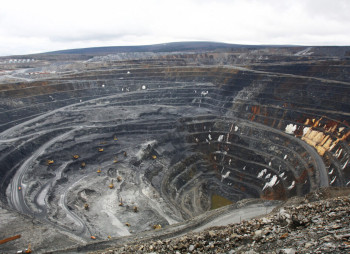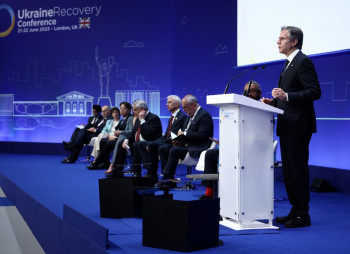Previous oil shocks were the best comparison investors could make in trying to predict how the war would affect markets. The first two shocks of the 1970s and early 1980s produced a quadrupling of oil prices. Inflation soared to double-digit levels, and severe global recessions ensued as central banks aggressively tightened monetary policies.
By comparison, the next two shocks, involving U.S. conflicts with Iraq in 1990 and 2003, were less severe. They resulted in a doubling of oil prices, but inflation did not accelerate materially, and the Federal Reserve refrained from tightening monetary policy.
The prevailing view among economists last year was that the impact of Russia-Ukraine fighting on energy prices would be similar to the U.S. conflicts with Iraq. Some energy experts anticipated that the price of West Texas Intermediate would nearly double to $125-$150 per barrel and that natural gas prices would increase even more due to Europe’s heavy dependence on Russian supplies.
But the price for crude oil subsequently fell steadily from $120 per barrel in June, and it is currently hovering around $75 per barrel. Even more surprising has been the steep drop in the benchmark price for natural gas in Europe. It has plummeted from a peak of $70 per million metric thermal unit in August to $20 recently.
In a previous commentary, I identified three forces at play. The first is aggressive tightening by the Federal Reserve and European Central Bank, which has weakened the global economy and reduced demand for energy. The second are the policies the European Union has pursued to conserve energy and to shift away from reliance on natural gas from Russia. The third is that Europe has experienced one of the mildest winters on record, which has lessened demand for heating oil.
Looking ahead, it is unlikely that energy prices will decline much further barring a global recession. It’s clear Western economies have adapted much better than expected to shortfalls resulting from the conflict.
This does mean that the conflict no longer poses a risk for the global economy and markets. Rather, the nature of the risk has evolved from the impact on energy to the threat that the war could escalate.
Initially, most observers believed Russian troops would overwhelm Ukraine and the fighting would end quickly. Now, there is realization that it will be long and drawn out as Russian President Vladimir Putin tests the West’s resolve in assisting Ukraine.
Russia’s unexpected military ineptitude and shocking cruelty have pulled the U.S. and NATO allies deeper into the conflict to the point where Ukraine is now the West’s war. The result is that they are increasingly compelled to provide a massive program of military assistance to break the impasse. The hope is that Ukraine will be able to capture the offensive in spring and retake ground that will enhance its bargaining position.
Meanwhile, as Russia’s military flounders, it needs to rebuild its weapons arsenal. The West’s main concern now is that China will enter the fray and offer Russia assistance. The Biden administration reportedly has confronted China’s government about the assistance some state-owned companies may be providing for Russia’s war effort.
Thus far, China has been reluctant to offer Russia its direct support for several reasons. One is that it may not want to be seen backing Russia if it thinks it will not prevail. Another is that China’s government is aware that it could face U.S. sanctions on trade and finance. Because China is much more closely integrated with the West than is Russia, its economy would suffer if there were a disruption in international trade and finance.
Biden recently stated that he did not threaten China with sanctions. But he reminded President Xi Jinping of the number of U.S. companies that have opted to close their operations. According to a Yale School of Management report, over 1,000 companies have curtailed their operations in Russia, although some remain.
The ability of Ukraine or Russia to maintain an arsenal of weapons may dictate the outcome. So, where does this leave investors today?
Previously, investors could focus on how energy markets were reacting to the conflict, and they could assign probabilities to possible outcomes in making risk-reward assessments.
But as the conflict has evolved over the past year, investors now must consider the geo-political consequences of an escalation of the war. Because the outcome is highly complex, it is more difficult to assign probabilities to them, and we now live in a more uncertain world.
Faced with this situation, investors may shrug their shoulders and ignore the possibility of the war escalating, or they may choose to lessen risk in their portfolios by adding cash or gold to their positions. While the correct stance is not obvious, one thing is: This is not a time to add risk to investment portfolios, especially with the Federal Reserve poised to tighten monetary policy further.
Nicholas Sargen, Ph.D., is an economic consultant with affiliations to Fort Washington Investment Advisors and the University of Virginia’s Darden School of Business. He is a regular contributor to The Hill and has authored three books, including “Global Shocks: An Investment Guide for Turbulent Markets.”






